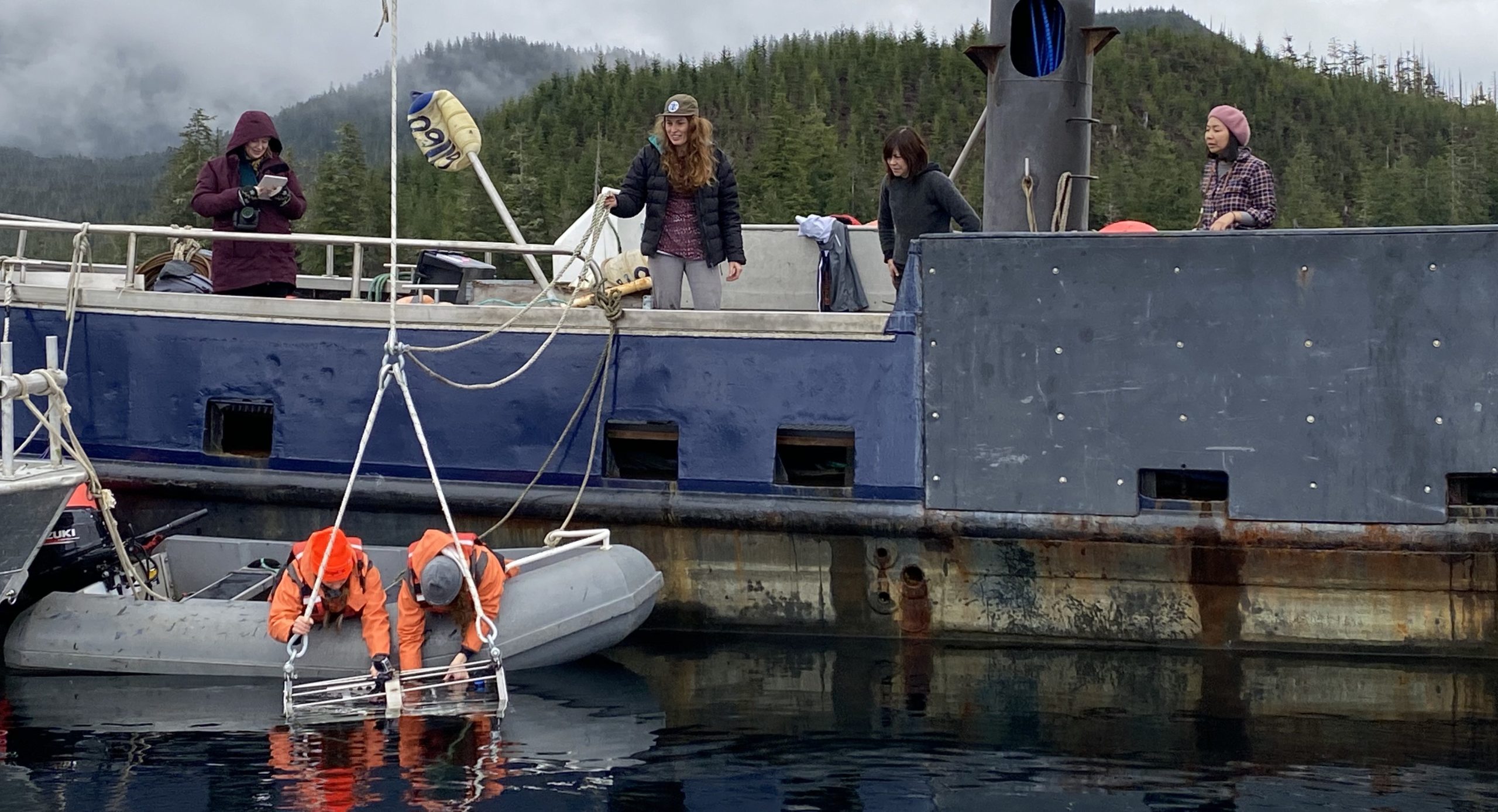On this World Oceans Day, we’re embracing the theme of Revitalization: Collective Action for the Ocean. Along with our friends at Luke’s Lobster, we are spotlighting organizations—both ones we admire and ones we’ve partnered with—that are taking action for the ocean. Join us in celebrating our seas and shedding light on organizations working to study, protect, and revitalize our marine environments, coastal communities, and working waterfronts!
Downeast Institute
In 2021, Luke’s Lobster partnered with Downeast Institute (DEI) to assist in their mission to examine soft-shell clam recruitment, growth and survival in coastal communities. Building on research they had started in 2020, their ultimate goal was to obtain information necessary to rebuild the iconic Maine fishery, which has suffered a 75% loss of landings since 1980 and 3,000 clammers. Additionally, the project aimed to increase visibility and public awareness of a fishery that is threatened by a dramatically changing marine environment and create an extensive data set for shellfish managers to better understand factors that affect the fishery.
In 2021, they continued their extensive research with partner communities spanning the coast of Maine in order to measure soft-shell clam recruitment and survival at two mud flats in each of 12 towns from Wells to Sipayik in eastern Maine. The final results can be found here; in general, clam recruitment numbers were down and green crab densities were up, most likely due to the warm winter of 2020-2021. You can read more about Downeast Institute’s research and its relevance and importance to these coastal communities here.
Saltwater Classroom
Saltwater Classroom is a 501(c)(3) nonprofit that aims to solve ocean issues by instilling an ethic of ocean stewardship in today’s youth through education. They do so through weeklong workshops with engaging lessons which allow students to be hands-on in their education, as well as field missions and creative projects. The core curriculum for Saltwater Classroom’s workshops includes learning about the role of our ocean globally, coastal ecosystems, an introduction to various species of fish and marine mammals, plus an understanding of the many issues facing oceans today and how their individual actions can help our oceans. A deep dive curriculum exists as well, focusing on more specific topics.
In addition to their work in educating our youth about our oceans, Saltwater Classroom partners with GoGo Refill for their Rubbish clean-up efforts in Portland, ME to remove any marine debris from the ocean environment. They create fun and educational experiences centered around community trash reduction and low-waste living right here in Maine, typically partnering with local businesses to host, perfectly embodying the spirit of World Oceans Day as they work to protect the marine resources we all rely on. Check out their upcoming clean-ups here, or log your own coastal clean-up here.
Bigelow Laboratory for Ocean Sciences and Partners
Bigelow Laboratory for Ocean Sciences has been leading research since 2015 in partnership with the Island Institute, the University of New Hampshire (UNH), Bangs Island Mussels, and Atlantic Sea Farms to determine whether kelp farming can locally remediate ocean acidification and improve growing conditions for nearby shellfish. It is well known that land plants, through the process of photosynthesis, remove carbon dioxide from the air. This team wanted to understand if fast growing kelp could remove enough carbon dioxide, the major cause of ocean acidification, from the water to improve water chemistry in and around the kelp farm. Through the use of moored scientific instruments measuring water chemistry, the team measured higher pH (decreased acidity) inside a kelp farm off of Chebeague Island and observed how mussels growing inside the farm are performing better. This team is now partnering and sharing its methodology with two other sugar kelp farms outside of Maine–Seaweed Solutions in Froya, Norway and Seagrove Kelp in Craig, Alaska, to quantify the ecosystem services of kelp farms in different environments.


